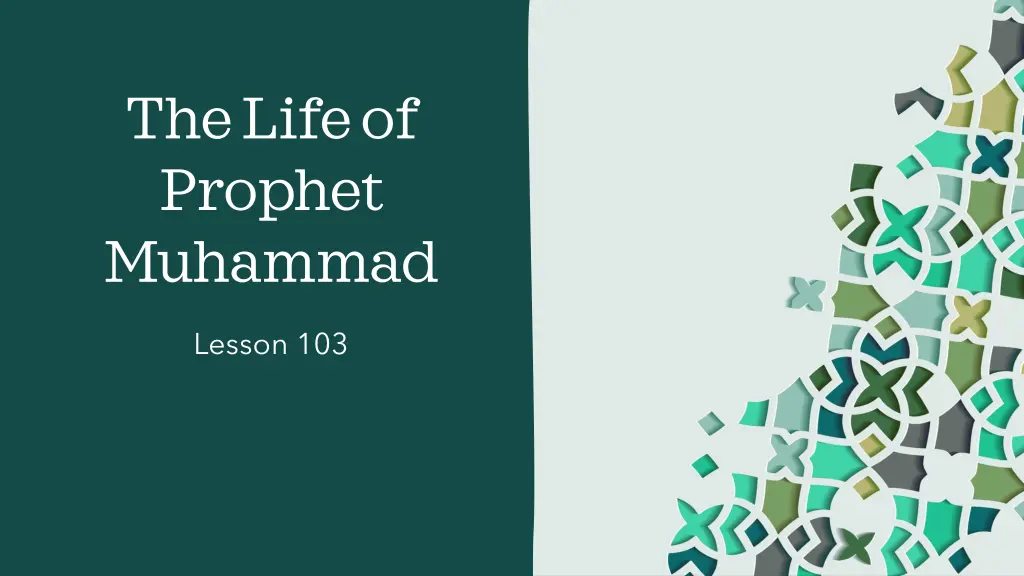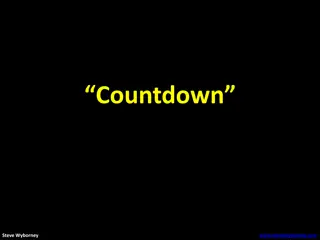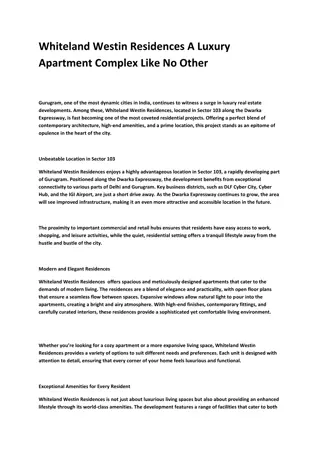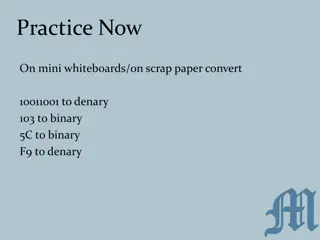
Prophet Muhammad's Final Moments in Medina
Experience the poignant moments leading to the passing of Prophet Muhammad in Medina, as his companions surround him with tearful eyes and heavy hearts. Witness the emotional exchange between the Prophet and his daughter Fatima, bringing solace amidst sorrow and anticipation.
Download Presentation

Please find below an Image/Link to download the presentation.
The content on the website is provided AS IS for your information and personal use only. It may not be sold, licensed, or shared on other websites without obtaining consent from the author. If you encounter any issues during the download, it is possible that the publisher has removed the file from their server.
You are allowed to download the files provided on this website for personal or commercial use, subject to the condition that they are used lawfully. All files are the property of their respective owners.
The content on the website is provided AS IS for your information and personal use only. It may not be sold, licensed, or shared on other websites without obtaining consent from the author.
E N D
Presentation Transcript
The Life of Prophet Muhammad Lesson 103
The Death of the Prophet Anxiety and turmoil engulfed the entirety of Medina. The companions of the Prophet surrounded the house of the Messenger of God (s) with tearful eyes and hearts heavy with sorrow, eager to learn about his condition. From time to time, news emerged from his house about the worsening of his illness and the intensification of his pain, extinguishing any hope of his recovery. People became certain that only a few fleeting moments of the Prophet s life remained and that the sacred light, which had illuminated the world, was soon to be extinguished.
The Death of the Prophet Some companions wished to visit their Prophet and leader up close, but his deteriorating health made that impossible. Only the members of his household were permitted to enter his room. His noble daughter Fatima sat by her father s bedside, gazing at his radiant face. She observed the sweat of death forming on his forehead and cheek like pearls. Overwhelmed with sorrow and a heart full of anguish, tears streamed down her eyes as she recited lines of poetry, her voice choked with grief and her heart aching:
The Death of the Prophet A radiant one, by whose face the clouds are sought for rain, A refuge for orphans, a protector of widows. At that very moment, the Messenger of God (s) opened his eyes and said to his daughter, al-Zahra, in a faint voice: "My dear daughter, these are the words of your uncle Abu Talib; do not recite them. Instead, say this..."
The Death of the Prophet "Muhammad is no more than a messenger; messengers have passed away before him. So if he dies or is killed, will you turn back on your heels? And whoever turns back on his heels will not harm Allah in the least, and God will reward the grateful. Quran 3:144
The Death of the Prophet Fatima began to weep, so he gestured for her to come closer. She approached, and he whispered something to her that brought a radiant smile to her face. : . : She was asked, "What did the Messenger of God whisper to you that relieved the anxiety and sorrow you felt over his passing? She replied, "He informed me that I would be the first of his household to join him, and that it would not be long after him until I would meet him. This brought me comfort and eased my sorrow. Source: Al-Irshad, v. 1 , p. 187
The Death of the Prophet : . . ... Then the Prophet said: "Come to me, O Ali. Come to me, O Ali. Come to me, O Ali," and he continued bringing him closer until he took his hand and seated him by his head. Then the Prophet lost consciousness. At this point, Al-Hasan and Al-Husayn stood crying and wailing, and they approached until they threw themselves onto the Messenger of God.
The Death of the Prophet . : : So Ali (a) tried to move them away from him, but the Prophet regained consciousness and said to him: "O Ali, let them be. Let me smell them, and let them smell me. Let me take my leave of them, and let them take their leave of me. Indeed, they will be oppressed after me and killed unjustly. Then the Prophet repeated three times: "May the curse of God be upon those who oppress them."
The Death of the Prophet . : During his illness and final days, the Messenger of God paid great attention to giving instructions and reminding the people about what would guide them. He emphasized the importance of prayer and the proper treatment of slaves. In his last days, he would say: "Prayer, prayer! And [care for] those whom your right hands possess. Clothe their backs, satisfy their hunger, and speak to them gently. Source: Tabaqat Al-Kubra, v. 2, p. 254
The Death of the Prophet : : . Ka'b al-Ahbar asked Umar ibn al-Khattab after the passing of the Messenger of God and during the latter s caliphate, What were the last words spoken by the Messenger of God ? Umar replied, Ask Ali.
The Death of the Prophet . : : . : So Ka'b asked Ali supported him against my chest, and he placed his head on my shoulder and said: Prayer, prayer. Ka'b said: This was also the final command of the prophets, and it is what they were ordered to emphasize and what they will be raised upon. and the Commander of the Faithful said: I , Source: Tabaqat Al-Kubra, v. 2, p. 262
The Death of the Prophet ". " : . " : ". . The Prophet opened his eyes during the final moments of his blessed life and said, Call my brother for me. Everyone understood that he meant Ali, so they called for Ali. The Prophet said, Come closer to me. Ali came close, and the Prophet leaned on him and continued speaking to him while resting against him. Source: Tabaqat Al-Kubra, v. 2, p. 263
The Death of the Prophet . : " : Al- Ayyashi narrated in his Tafsir on the authority of Imam Al-Baqir (a) that when Ali (a) closed the eyes of the Messenger of God (s) after his passing, he said: Indeed, we belong to God, and to Him we shall return. What a calamity this is, one that has afflicted those closest to him and encompassed all the believers. Never before have they suffered such a loss, nor witnessed anything like it.
The Death of the Prophet At midday on Monday, the 28th of the month of Safar, the pure soul of the Prophet ascended to its Creator and to the eternal gardens of Paradise. He was shrouded in a Yemeni cloak and placed in his chamber for some time. The cries of the household rose, and the weeping of his relatives grew louder, so those outside the house realized that the Prophet had passed away. It was not long before the news of his death spread throughout Medina, which quickly turned into a scene of immense mourning
The Death of the Prophet As news of the Prophet's passing spread, something astonishing occurred: a group emerged, refusing to acknowledge his death and threatening anyone who dared to confirm it. : Umar ibn al-Khattab came out of his house and said: "By God, if I hear anyone say that the Messenger of Allah has died, I will kill him! The Messenger of God has not died; rather, he has disappeared from us just as Musa (Moses) disappeared from his people for forty nights."
The Death of the Prophet "By God, the Messenger of God will surely return to his people just as Musa (Moses) returned to his people, and he will cut off the hands and feet of some men." He continued to repeat these words, gathering after gathering, until Abu Bakr came out to him and said: "Calm down, O Umar."
The Death of the Prophet But Umar did not listen to him. When Abu Bakr saw that Umar was not paying attention, he stood up, praised Allah, glorified Him, and sent blessings upon the Prophet .Then he said: "O people! Whoever used to worship Muhammad, then Muhammad has indeed died. But whoever worships Allah, then Allah, Glorified and Exalted, is Ever-Living and does not die. Indeed, Allah has announced the passing of His Prophet to Himself while he was among you, as He said: 'Indeed, you will die, and they will die.' (Surah Az-Zumar, 39:30) They said that it was at this moment that Umar ceased the words he had been saying.
The Death of the Prophet The moment the Prophet passed away, discord appeared before his pure body was even laid to rest. Ibn Ishaq paints a clear picture of the strife that erupted after his passing, saying: . : Ibn Ishaq said: When the Messenger of God passed away, this group of the Ansar gathered around Sa d ibn Ubadah in the Saqifah of Banu Sa idah. Meanwhile, Ali ibn Abi Talib, Zubair ibn al-Awwam, and Talha ibn Ubayd Allah secluded themselves in the house of Fatimah. The rest of the Muhajirun gathered around Abu Bakr, joined by Usayd ibn Hudayr from Banu Abd al-Ashhal.
The Death of the Prophet The standard Sunni position is that these companions prioritized the pledge of allegiance (bay'ah) as the most important matter. What is worth noting here is this: if the issue of succession (caliphate) was so critical that neglecting it would lead to immense harm, why did the Prophet not address it clearly and leave no ambiguity for the people? Was it not more appropriate for him to resolve this matter and prevent any future discord? Or did Abu Bakr and Umar care for Islam more than the Prophet?
The Death of the Prophet Al-Mufid mentioned in "Al-Irshad" that when Ali prepared to wash the body of the Messenger of God, he summoned al-Fadl ibn Abbas and blindfolded his eyes following the Prophet's instructions and instructed him to hand him water for the washing. Then Ali tore the Prophet s shirt from the neck opening to his navel, and he personally undertook the tasks of washing, anointing, and shrouding the Prophet.
The Death of the Prophet " : ) ( : When Ali finished washing (and shrouding) the body of the Prophet, he uncovered his face and said: "May my father and mother be sacrificed for you. You were pure in life and pure in death. With your passing, what ended was something that had never ended with the death of anyone else the continuity of prophethood and divine revelation.
The Death of the Prophet ". . . . You were so unique that you brought solace for the loss of others, and yet you were so universal that all people were equal in their attachment to you. If it were not for the fact that you commanded patience and forbade despair, we would have exhausted our tears mourning you. May my father and mother be sacrificed for you remember us before your Lord and make us among your concerns. Then he leaned forward, kissed his face, and covered it with the shroud.
The Death of the Prophet ) " : . " : ". ( ) : : ( Al-Abbas came to the Commander of the Faithful and said to him: "O Ali, the people have gathered to appoint one of them to lead the prayer for the Prophet and bury him in the Baqi' prayer ground." The Commander of the Faithful then went out to the people and said to them: "O people, the Messenger of God is our Imam in life and in death, and he has said: I am to be buried in the place where I pass away. Source: Al-Kafi, v. 1, p. 451
The Death of the Prophet : Aisha said: "We did not know about the burial of the Messenger of God until we heard the sound of digging tools in the depths of the night on the night of Wednesday. Ibn Hisham writes: . The Messenger of God was in his room, and his affairs had not yet been completed, as his family had closed the door behind him.
The Death of the Prophet . : Then he instructed the people to enter in groups of ten at a time to pray over him, and then leave. He admitted another group of ten, who gathered around him. The Commander of the Faithful stood among them and recited: Indeed, God and His angels send blessings upon the Prophet. O you who have believed, ask [God to confer] blessings upon him and ask submit to him in complete submission (Surah Al-Ahzab, 33:56) They recited as he did, until all the people of Medina and the surrounding areas had prayed over him. Source: Al-Kafi, v. 1, p. 450
The Death of the Prophet : Al-Mufid said: Most people missed the opportunity to pray over the Messenger of God due to their disputes over his succession! The custom of the people of Makkah was to dig a duhrih (a hollow in the middle of the grave) for burial, and the one who would dig graves for them in Medina was Abu Ubaydah ibn al-Jarrah. However, the people of Medina used the lahd (a niche on the side of the grave), and the one who would dig graves for them was Abu Talhah Zayd ibn Sahl al-Ansari.
The Death of the Prophet Al-Abbas said: "O God, choose what is best for Your Prophet." He then sent two men to call Abu Ubaydah and Abu Talhah, whichever of them could be found first. They found Abu Talhah Zayd ibn Sahl, who was brought and instructed: "Dig a grave for the Messenger of God." So he dug a lahd (a side niche). The Ansar were gathered around the house and called out to Ali: O Ali, we remind you of Allah and of our right today regarding the Messenger of God! Do not let it be lost. Allow one of us to be involved in burying the Messenger of God so that we may have a share in laying him to rest."
The Death of the Prophet Ali said: "Let Aws ibn Khawli enter." Aws was a distinguished companion from the Khazraj tribe who had participated in the Battle of Badr. When Aws entered, Ali said to him: "Descend into the grave." So Aws descended, and Ali carried the Prophet and lowered him into the grave, placing him in the hands of Aws al-Khazraji. Once the Prophet was placed on the ground, Ali said to Aws: "Come out." And Aws exited the grave. (Al-Irshad, v. 1, p. 188) Then Ali descended into the grave, uncovered the face of the Messenger of God, and placed his cheek on the ground, directing him toward the qibla on his right side. Then he arranged the bricks over the niche (lahd), exited the grave, and covered it with earth.
The Death of the Prophet While Ali was leveling the grave of the Messenger of God with a mattock in his hand, a man came to him and said: "The people have pledged allegiance to Abu Bakr, and the freed captives (Tulaq ) hastened to secure the pledge for him out of fear that you might take control of the matter. Meanwhile, the Ansar were divided due to their disagreements, leading to their failure. Ali placed the mattock on the ground with his hand resting on it and said...
The Death of the Prophet ` * * ` * ` Alif, Lam, Meem. Do the people think that they will be left to say, "We believe," and they will not be tested? We certainly tested those before them, and God will surely make evident those who are truthful, and He will surely make evident the liars. Or do those who commit evil deeds think they can outrun Us? Evil indeed is what they judge. Quran 29:1-4






















